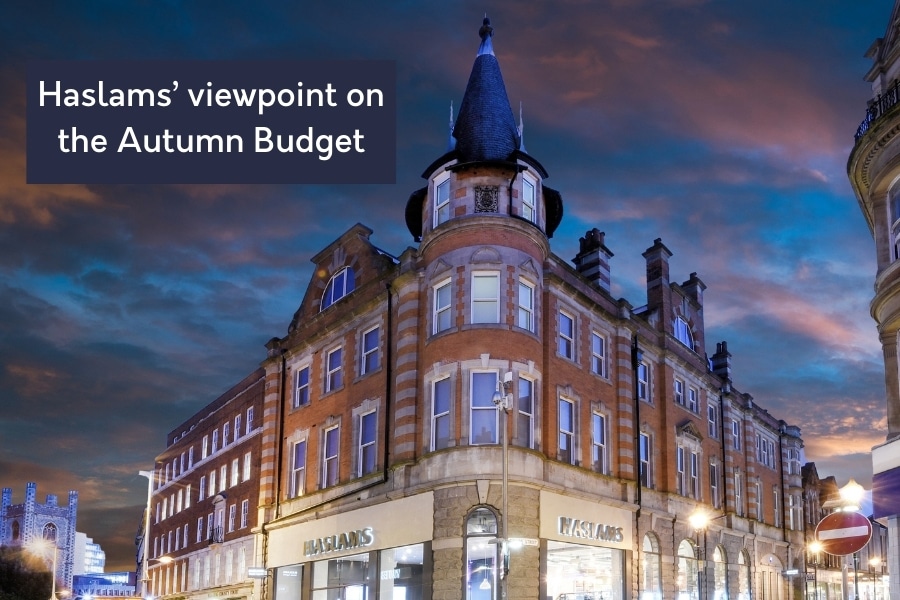Following the Autumn Budget announcement, here are our views on its two property-related policies: the Council Tax surcharge and the property income tax rates.
The policy: high value Council Tax surcharge
- A new annual charge for properties valued over £2m, starting in April 2028. There will be four bands, from a £2500 charge for properties between £2m and £2.5m, up to £7500 for those worth over £5m. The middle bands were not published.
- The Government will launch a consultation in 2026 on the details, reliefs, exemptions and appeals process. A particular issue will be those owners with valuable assets and little income – how are their surcharges paid?
Our viewpoint
- The policy is more benign than the industry feared and the media had reported.
- Even though the tax will not start until 2028, it will be immediately priced in to market values. While it will not help demand, we do not think it will slow transactions greatly given the quantum seems relatively proportionate.
- To illustrate, the Stamp Duty on a £2m purchase is £153,750 if it is the buyer’s principal residence. A £2,500 annual charge over 10 years represents a 1.6% increase in stamp duty per year over a decade (£25,000 is 16% of £153,750).
- There will be ‘bunching’ where values coalesce below each band, e.g. Just below £2m, £2.5m, £5m etc. Expect lots of guide prices at £1.99m, £2.495m, etc. We would expect this immediately as transactions before 2028 will crystallise the property value.
- There will also be legal challenges about value and that is ahead of us. The larger (and more unique) the property, the harder it is to value via direct comparables. The policy may be announced but the debate has only begun.
- While this new policy may deter some downsizing, we do not expect it to affect the mid-market. Indeed, now that buyers have clarity and certainty over their potential purchase, we expect demand in our core markets to increase.
The policy: increased property income tax
- From April 2027, the rates of income tax for income from property, savings and dividends will increase by 2% – the new bands being 22%, 42% and 47%.
- This policy will affect those landlords who hold properties in their own names; property held by companies will be unaffected.
Our viewpoint:
- Nobody likes paying more tax. Some landlords will be upset, feeling that they are being taken advantage of at a time when they will be under more pressure to keep their properties in good condition and meet the proposed (but not confirmed) higher EPC standards.
- Other landlords will exhale a sigh of relief as the pre-briefing was that National Insurance would be applied to rental income and a 2% surcharge compares favourably to the current NI rates of 8% for employees and 6% for the self-employed (up to certain thresholds).
- Our view is that it could have been worse. We do not expect this 2% to trigger disposals on its own. Landlords and agents have plenty of work ahead in preparing for the Renters Rights Act from 1st May 2026. The Chancellor may have realised this and she has resisted more onerous taxation.
Our overall view on how the Budget will impact the property market
- The extra tax rates and charges are painful for those affected yet more palatable than the media briefings. The November 2025 Budget is more notable for the policies not included: no mention of applying Capital Gains Tax to your primary residence; no discussion of reforming Stamp Duty Land Tax; no sign of annual charges for all properties worth more than £500,000 after a transaction takes place.
- While you could argue this is a missed opportunity to reform (or ban) Stamp Duty, and there is no demand-side stimulus for the new homes sector, overall we expect the market to absorb this news quickly and demand to pick up from those buyers who have been waiting to know where they stand.

